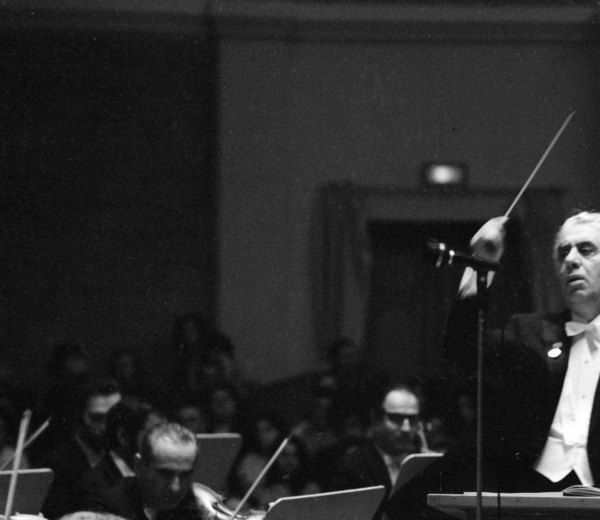Aram Khachaturian, Composer
Submitted by market_publisher_es on Fri, 03/06/2015 - 07:22
English
Aram Khachaturian was one of the greatest composers of the 20th century. His music conquered the Soviet Union and, eventually, the world. He was known for melding Armenian folk melodies into his compositions.
Origin
Khachaturian was born and raised in Tiflis (modern-day Tbilisi, Georgia) in 1903 to Armenian parents. He moved to Moscow after the creation of the Soviet Union, where he received his training at the Gnessin Conservatory. Although he was an ardent socialist, he was targeted by the authorities for supposedly making his music inaccessible to the common people. Although later rehabilitated, he produced very little work until his death.
Claim to fame
Several compositions, including the “Gayane” ballet, which was used in the Stanley Kubrick film “2001: A Space Odyssey.” Some of his other famous works are “Sabre Dance” and “Spartacus.”
What he said
“I'm an atheist, but I'm a son of the [Armenian] people who were the first to officially adopt Christianity and thus visiting the Vatican was my duty.”
“No matter how I may waver between various musical languages…Together with other [Armenian composers], we will make all of Europe and the whole world listen to our music. And when they hear our music, people are certain to say, 'Tell us about
that people, and show us the country that produces such art.’”
What others said
“So it is small wonder that when an exceptionally gifted Armenian with a distinctive musical personality deeply rooted in the folk traditions of his region chose the path of a music professional, he was readily admitted to the Moscow Conservatory and soon became its star.” – New York Times
“His best known piece, the breathtaking ‘Sabre Dance,’ richly deserves its worldwide popularity.” – Alan Blackwood in Encyclopedia of Music in the 20th Century
“His music, of course, has a little bit of the edginess of the 20th century sound, the dissonances coming in. But at the same time it marries this beautiful neo-romanticism and lush orchestration and the over-the-top approach, so I think he can be quite relevant these days.” – Marin Alsop, music director of Baltimore Symphony Orchestra and conductor of Sao Paulo State Symphony Orchestra
Noteworthy work
Coming up
Image:

Display type:
Small
Weight:
20
